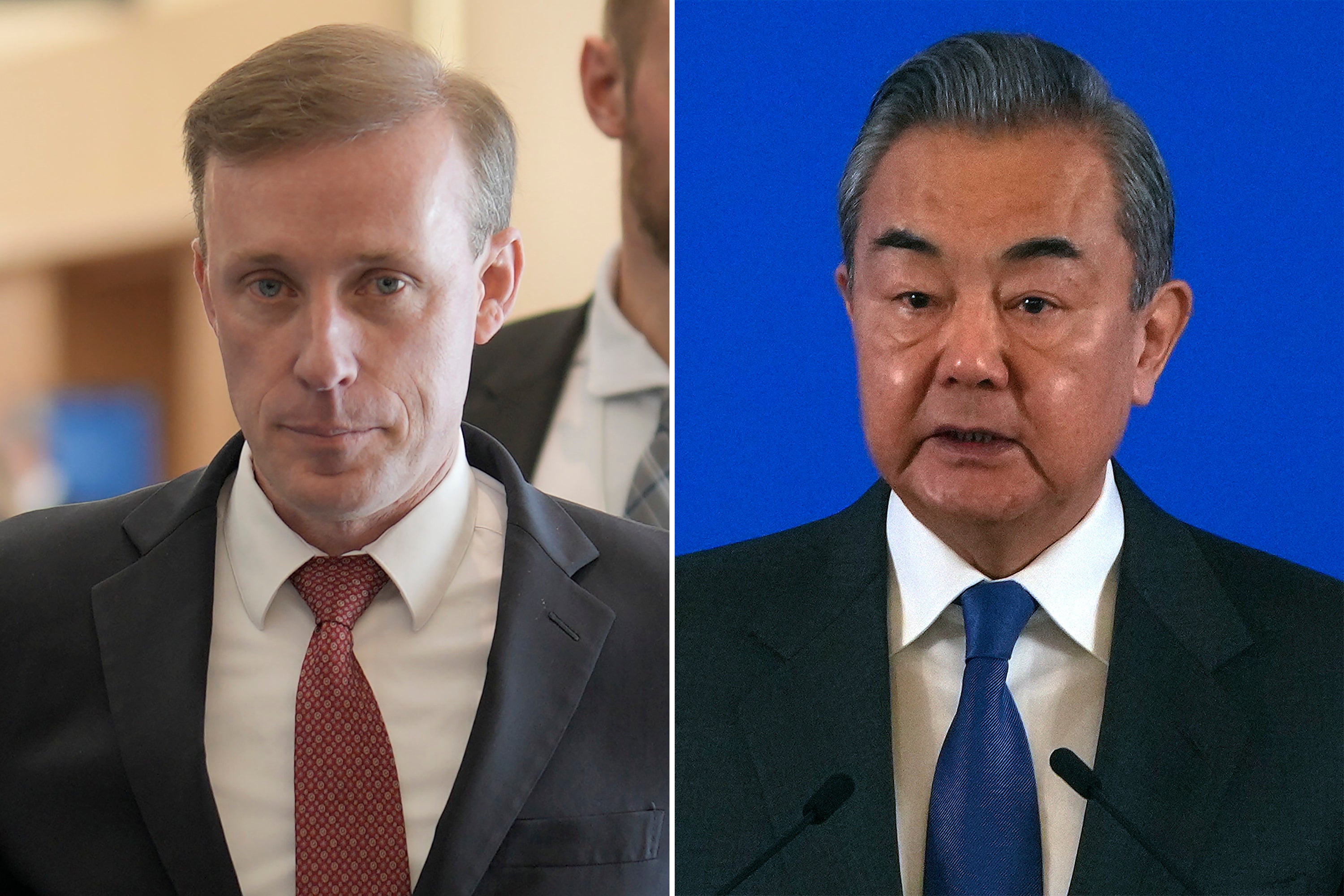Beijing steps up military pressure on Taiwan after the US and China announce talks
Taiwan's defense ministry says China sent more than 30 warplanes and a group of navy ships toward the island in a 24-hour period

Your support helps us to tell the story
This election is still a dead heat, according to most polls. In a fight with such wafer-thin margins, we need reporters on the ground talking to the people Trump and Harris are courting. Your support allows us to keep sending journalists to the story.
The Independent is trusted by 27 million Americans from across the entire political spectrum every month. Unlike many other quality news outlets, we choose not to lock you out of our reporting and analysis with paywalls. But quality journalism must still be paid for.
Help us keep bring these critical stories to light. Your support makes all the difference.
China sent more than 30 warplanes and a group of navy ships toward Taiwan, the island’s defense ministry said Saturday.
The military pressure comes on the heels of an announcement that senior American and Chinese representatives were expected to meet in the Thai capital as the two countries seek to cool tensions.
The Chinese People’s Liberation Army sent 33 aircraft, including SU-30 fighters, and six navy vessels around Taiwan, between 6 a.m. Friday to 6 a.m. Saturday. Of these, 13 warplanes crossed the midline of the Taiwan Strait — an unofficial boundary that's considered a buffer between the island and mainland. Taiwan has monitored the situation and employed its own forces in response to the activities.
China claims self-ruled Taiwan as its own territory and in recent years has shown is displeasure at political activities in Taiwan by sending military planes and ships. Taiwan said six Chinese balloons either flew over the island or through airspace just north of it days after the self-governing island elected Lai Ching-te as the new president. Lai’s Democratic Progressive Party largely campaigned on self-determination, social justice and a rejection of China’s threats.
United States National Security Adviser Jake Sullivan and Chinese Foreign Minister Wang Yi were both in Bangkok for talks, though it wasn't clear when the meeting would take place or if it already had.
U.S. President Joe Biden and Chinese President Xi Jinping met on the sidelines of a summit in November in an effort to patch up frayed relations due to quarrels over a range of economic and geopolitical issues. U.S. National Security Council spokesperson Adrienne Watson said the planned meeting in Bangkok continues the commitment Biden and Xi made "to maintain strategic communication and responsibly manage the relationship.”
During talks, Foreign Minister Wang would make clear China’s position on Taiwan and on U.S.-China relations, and discuss international and regional concerns, ministry spokesperson Wang Wenbin said Friday.
An immediate international concern to both countries is tensions in the Red Sea that have upended global trade by forcing many shippers to avoid the Suez Canal. Beijing said it has been making positive efforts to de-escalate the situation in which Iran-backed Houthi rebels have fired missiles at international ships.
Subscribe to Independent Premium to bookmark this article
Want to bookmark your favourite articles and stories to read or reference later? Start your Independent Premium subscription today.